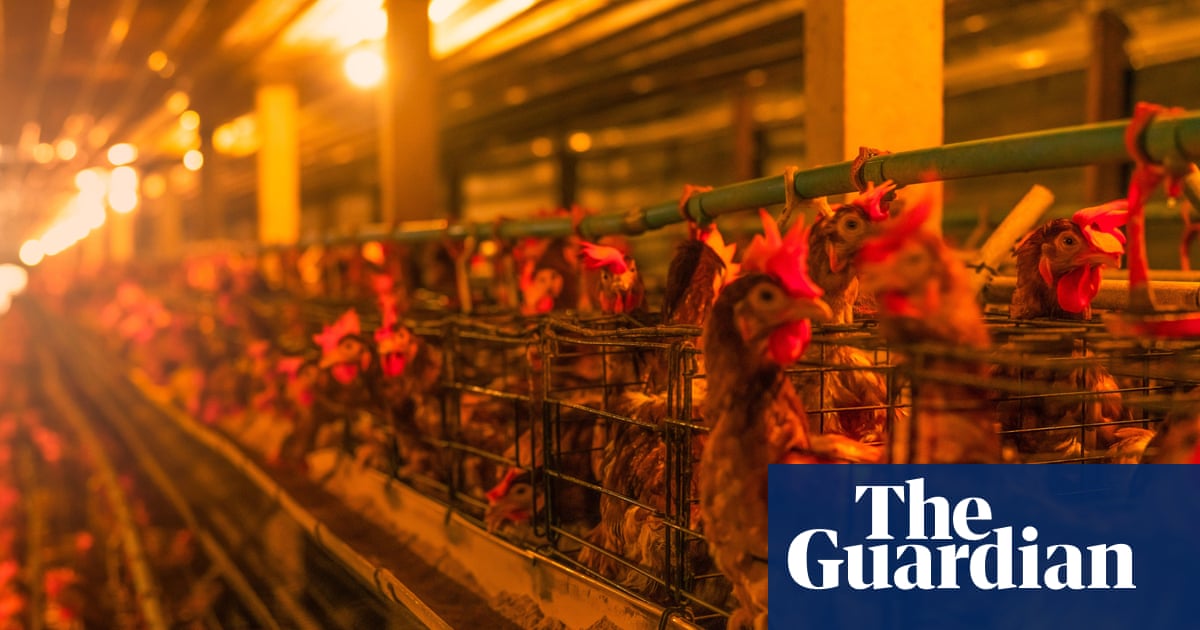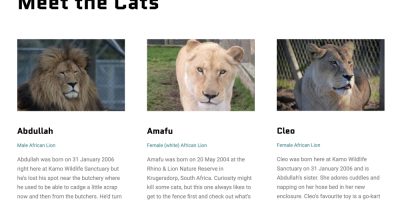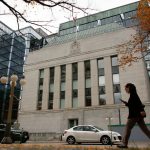Plans for intensive livestock “megafarms” are omitting crucial climate impacts, it can be revealed.
Campaigners last year celebrated a “beginning of the end” to polluting factory farming, after the landmark Finch supreme court ruling on a Surrey oil well confirmed that applications for major developments should consider all significant direct and indirect greenhouse gas emissions.
However, a review of 35 proposed developments across the UK’s largest farming counties since the June 2024 ruling found that applications routinely ignored or downplayed the industry’s carbon footprint.
The research by advocacy group Sustain, which was analysed by DeSmog and the Guardian, looked at all applications for Herefordshire, Lincolnshire, Norfolk, Suffolk, Nottinghamshire, Shropshire, Yorkshire, Wales and Northern Ireland which were under consideration by local councils between the 2024 ruling and September this year.
Farms housing more than 900 sows, 3,000 pigs, 60,000 hens for eggs, or 85,000 chickens for meat are required to provide information on expected environmental impacts under UK law when applying for planning permission.
The applications reviewed were mainly submitted by UK-based farm companies, but some were from major meat producers – including Crown Chicken, a subsidiary of Cranswick, which is one of the largest meat companies in Europe and slaughters nearly 60 million birds a year. Cranswick was responsible for three million tonnes of carbon dioxide emissions in 2024.
If all applications reviewed were accepted for development, an additional 30,000 pigs and nearly five million chickens would be farmed across England, Northern Ireland and Wales – amounting to more than 37 million additional animals reared in the UK each year.
Intensive pig and poultry farms are high emitters of methane and nitrous oxide, potent greenhouse gases that cause about 30 and 300 times more global warming respectively than carbon dioxide over a 100-year period. According to Sustain’s estimates, if all the applications analysed were approved this could generate an estimated 634,000 tonnes of CO2-equivalent emissions annually — the equivalent of 488,000 return flights from London to New York.
None of the 35 applications provided figures on likely emissions from the farm, despite the fact that councils are required to factor in climate harms in planning decisions. Government policies say that local planning should support the country’s goal to reach net zero by 2050.
The findings come as numbers of intensive livestock farms increase across Europe, with more than 1,500 industrial-scale pig and poultry farms operating in the UK.
“Vital information is being kept from councils and the public,” Ruth Westcott, campaign manager at Sustain, said.
“It’s clear that agribusinesses don’t want to come clean about the pollution they cause because it could affect whether they are allowed to expand, and thus make more profits at the expense of our communities,” she added. “It’s an emissions scandal.”
Councils are facing growing pressure from residents to refuse planning permission to companies which fail to robustly assess climate impacts.
In April, after public pressure, King’s Lynn & West Norfolk borough council denied planning permission for the Methwold megafarm that would have housed almost 900,000 chickens and pigs, partly due to its lack of climate assessment – making it the first-known refusal on these grounds.
Breckland council in Norfolk likewise refused planning permission to the Cherry Tree Farm in October, in part because it had not provided an updated environmental impact assessment, including “project-specific carbon emissions”. The farm – which is owned by Wayland Farms, also a subsidiary of Cranswick – was forced to apply for retrospective approval for previously completed construction. Local residents had made complaints over the “stench” after its expansion in 2019.
When asked about the lack of climate data in its applications, Cranswick declined to comment.
In total, four of the applications reviewed have been refused so far – three of which were submitted by Cranswick.
However, other councils in Norfolk, Nottinghamshire, Suffolk, Lincolnshire and Yorkshire have approved six farms that have not provided any specific information on the farm’s climate impacts in the past 12 months, the research shows.
Councils which responded to requests for comment said they had complied with planning regulations, and that they were unable to comment on individual planning applications.
More than half (57%) of the planning applications reviewed were for major extensions and alterations, and the remainder for new farms.
Jan Palmer – a resident of Methwold village in Norfolk who campaigned against the Cranswick megafarm that was denied planning permission in April – has called for greater scrutiny of impacts from proposed farms.
after newsletter promotion
“These are industrial developments. It’s called industrial farming, and it has industrial emissions,” she said. “If my local megafarm application hadn’t been so fiercely challenged, and by so many, it would’ve slipped through the system like so many others do – quietly and without scrutiny but with devastating consequences.”
Companies seeking permission for any large-scale developments – ranging from motorways and oil and gas extraction sites to intensive farms – are required to conduct environmental impact assessments showing the likely effects of developments on biodiversity, the climate, and other environmental factors.
Applications for intensive livestock farms routinely include information on issues such as air pollutants and unpleasant smells, the review showed. However, the vast majority of applications overlooked climate impacts.
Of the applications reviewed, 35% mentioned the farm’s operations only in passing, while 55% did not discuss these climate impacts at all.
Large projects must assess all “significant environmental impacts” under UK planning law. Lawyers said few cases had so far tested the threshold for significant climate impacts from farms in the courts, but given the well-documented emissions from intensive farming, applications could face growing challenges in coming years.
“Where the companies are not assessing their climate impacts, they may be open to legal challenge,” said Ricardo Gama, an environmental lawyer at Leigh Day solicitors. “Agriculture has flown under the radar on so many of these issues, but I think that is changing.”
Over the past year, six local councils have granted permission to applications which did not contain any assessment of the farms’ likely emissions, as well as one that granted permission to a farm with only passing discussion, the research shows.
Planning authorities have an obligation to consider all relevant environmental impacts before granting permission, according to legal experts.
While applicants propose which environmental impacts should be assessed as part of planning applications, it is the council’s legal responsibility to ensure that all significant effects are covered and that adequate information on these is provided before granting planning permission.
“When the council or the inspector or the secretary of state is considering whether to grant planning permission, climate impacts need to be weighed in the balance,” Gama said. “I think councils’ approach[es] will change as the public becomes more aware of the climate impact of agriculture.”
The research found that environmental assessments also repeatedly failed to discuss emissions that did not directly arise on the farms. Of the 35 applications reviewed, just one included information on the farm’s likely emissions from animal feed – the largest source of greenhouse gases for both big livestock and poultry.
The majority of pigs and chickens in the UK are fed soy, which is one of the biggest drivers of deforestation in regions such as the Amazon. According to campaign group WWF, the UK’s demand for soy requires more than 1.7m hectares of land each year – an area larger than Northern Ireland.
One environmental impact assessment for the expansion of a poultry megafarm currently under consideration in Shropshire – which would increase its total number of birds to up to 350,000 – stated that carbon dioxide emitted from the development would be offset “due to the reduction in emissions from transporting poultry meat from elsewhere”.
Transportation accounts for between just 5-7% of total emissions from chickens reared in the UK.
A Shropshire council spokesperson said applications were processed “in accordance with [EIA] regulations”, which included taking into account direct and indirect effects of the proposed development on the environment.














